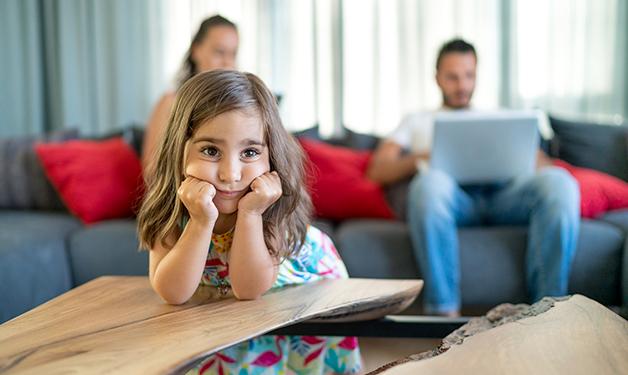
With schools and playgrounds closed and activities cancelled, Dr. Sarah Moore shares tips for parents to help their children stay physically active and healthy.
Q: I understand that we should all stay home to help flatten the curve on COVID-19. Is it safe to take my children outside?
A: It’s important to consult and abide by the Provincial Health Officer’s recommendations before going outside. At the moment, these recommendations include: keeping at least two metres away from others, not using playground equipment or closed parks facilities, and washing your hands thoroughly. These guidelines are quickly changing so be sure to keep up to date on local requirements as the situation develops.
If you can go outside safely, try to find wide local trails to walk or bike, make an urban scavenger hunt in your neighbourhood, walk the dog, create a giant game of snakes and ladders using chalk, make an obstacle course in your backyard—rain or shine, all outside playtime is good. Just remember to pay attention to any outdoor area closures, which now includes many BC parks.
Q: What about activities for children inside?
A: If you are asked to stay inside, try an indoor game of hopscotch using painters tape, an online children exercise or yoga class, a family fun circuit or a dance party, and bang those pots and pans for our healthcare workers each night at 7:00pm—there are lots of creative ways to keep moving even while inside your home.
“Kids can be active in ways that don’t include playgrounds, playdates, community centres and sports gatherings. There are many other ways to get moving, both indoors and outside.”
Q: Being out of school, I’m worried my children are spending too much time in front of screens. Should I be limiting the amount of screen time they have?
A: Given that much of our communication is now online, it can be difficult to limit screen time. UBC Faculty of Education Professor Jennifer Shapka noted in a recent article that “you’re not breaking your children” if they are on screens a bit more now than they were pre-pandemic.
However, the Canadian Pediatric Society has reported on the risks of screen time particularly for younger children. In general, watching screens for too long can be detrimental to children’s developing brains. Children need to move around and keep active to help with their development, and they can’t do that if they are sitting in front of TV or tablet screens. You can try swapping screen time for other activities like reading, puzzles and art, too.

Q: Why is getting enough physical activity important for children?
A: Physical activity is vital for children and youth, especially during times of stress or uncertainty like we are experiencing now. Children need to be active every day to promote good physical and mental health. Adding some movement into your life and theirs may help relieve stress, improve sleep and support the immune system. Play can be a safe place where a child feels in control—a place of refuge during hard times—so don’t skimp on playtime as it’s an important part of processing and coping with this pandemic.
Q: How can I best support my children’s health during this stressful time?
A: As parents, we can use this time to be a physical activity role model for our children and demonstrate healthy ways to cope with stress during a crisis. Hopefully our children won’t remember this as a stressful time, but as a time when they played and tried new things with their family.



